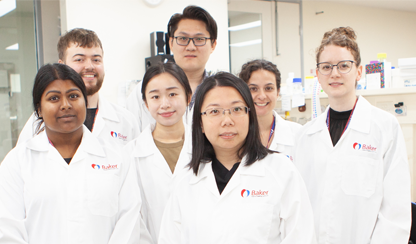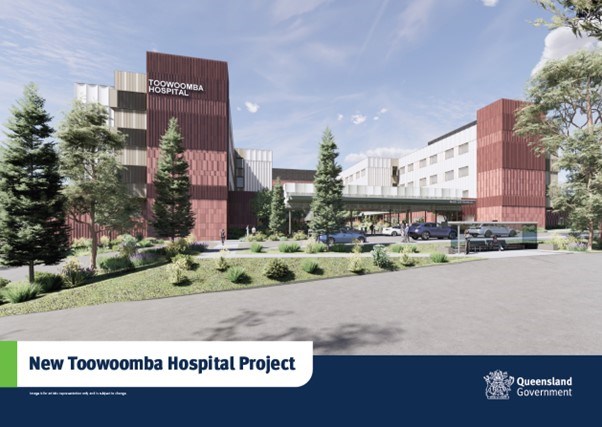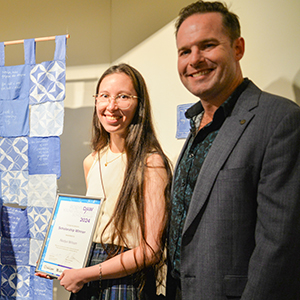
Our researchers have recently received $1.7 million in Medical Research Future Fund (MRFF) grants to advance the treatment of cardiovascular diseases via innovative mRNA nanotechnology and artificial intelligence-guided cardiac imaging.
Associate Professor Xiaowei Wang, Head of Molecular Imaging and Theranostics Laboratory, was granted $690,000 to support a research study into the delivery of targeted mRNA-based therapies directly to the site of inflammation to treat three major cardiovascular diseases. Professor Tom Marwick, Head of Imaging Research, was granted $1million through the Baker Department of Cardiometabolic Health at the University of Melbourne, to determine if AI-guided echocardiography identifies heart failure and heart valve disease better than usual care for patients in rural and remote Australia.
A/Prof Wang’s study will investigate three innovative mRNA therapeutic approaches to combat chronic cardiovascular diseases using novel nanoparticles with targeting strategies.
The three main diseases include atherosclerosis, which contributes to 80 per cent of cardiovascular diseases and is the leading cause of heart attacks and strokes; pulmonary hypertension, which affects 1 per cent of the world’s population; and abdominal aortic aneurysm (AAA), which has a mortality rate of 90% in those affected. All three chronic diseases start with inflammation.
A/Prof Wang said these novel mRNA-based therapies will incite the production of an anti-inflammatory protein at the site of disease to directly reduce inflammation and blockages (thrombosis) for these three chronic cardiovascular diseases, each of which currently have limited or no pharmacological treatment.
“For each of these cardiovascular diseases, we will design a unique delivery system using novel liposomal nanoparticles,” A/Prof Wang said.
“We will target the disease and send nanoparticles directly to where they are needed, then trigger the release of the mRNA. These exciting therapies promise to be safer than traditional gene or drug therapy because they are so targeted.
“Current drug therapies require high doses because they are not delivered specifically to the disease area and have harmful systemic side effects. The mRNA-based targeted strategies that we are investigating can stop the progression of inflammation, providing the opportunities of preventing cardiovascular disease events like heart attack, stroke, heart failure and aneurysm rupture, without the unwanted side effects.
“We are grateful to the MRFF for funding us to advance this important research.”
Professor Marwick’s study will investigate whether AI-guided echocardiography, which does not require a specialist to perform, is more effective than current methods in identifying heart failure and heart valve disease for patients in remote parts of Australia.
“Delayed diagnosis of heart valve disease and heart failure in rural and remote regions of Australia is attributable in part to access difficulties, particularly echocardiography, which is the main diagnostic test for both,” Prof Marwick said. “The consequences of these delays are failure to treat the underlying conditions, with ongoing reduced function and impaired quality of life. The use of new technologies that provide echocardiography through the hands of non-experts, may accelerate the diagnostic process, reduce unnecessary travel, and reduce delays to management.
“At the Baker Institute, we are committed to health equity. This study is a positive step towards our commitment to provide good healthcare access for all Australians.”
The MRFF is an Australian Government research fund that delivers grants for important health and medical research initiatives.







